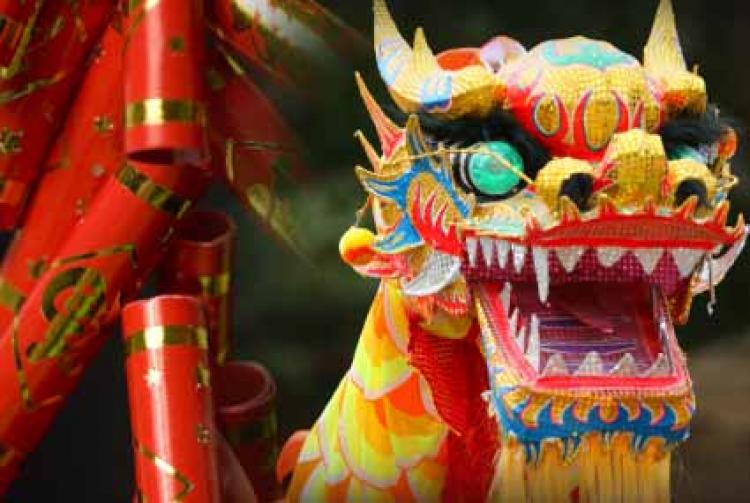
Do You Get a Black Moon?
What is a Black Moon, and why does it happen in December?
Lunar New Year is considered to be the most important festival for the Chinese community in the Philippines. It does not follow a fixed date in the Gregorian calendar, which is widely used in many countries. The celebration stretches to about 15 days with varied observations each day.
Lunar New Year's Day is a public holiday. It is a day off for the general population, and schools and most businesses are closed.

Lunar New Year is a festive occasion that is celebrated in countries such as the Philippines.
©iStockphoto.com/c-photo & Kameleon007
The Lunar New Year date changes every year, falling no earlier than January 21 and no later than February 21. But why? Read our holiday news article on this very topic.
Filipino-Chinese communities in the Philippines celebrate Lunar New Year every year in hope of attracting prosperity, closer family ties and peace. Most Filipino-Chinese families usually clean their homes thoroughly, prepare lucky money in red envelopes, serve sweet foods and display various food and fruits on a table, which is believed to invite good fortune. People also participate in parades and dragon dances that are organized in China Towns in different cities in the Philippines.
Lunar New Year is not an official holiday in the Philippines so all establishments remain open. However, some streets in several China Towns in different cities may be closed to honor this celebration.
Small Chinese communities existed in the Philippines since the Spanish regime, which lasted for more than 300 years dating back from the 16th century. As time progressed, the Chinese communities grew due to intermarriage among Filipino natives and other races, including the Chinese. As the population grew, so did the grandeur of the Lunar New Year celebration.
Lawmakers have proposed to make the Lunar New Year a legal public holiday. However, there is still debate that adding another holiday in the Philippines could be detrimental to the economy due to the increasing holiday incentives. The Republic Act 9492 dictates that for every legal non-working holiday, all working establishments should give incentives or overtime pay to their employees.
The mythological Chinese dragon is the main symbol of Lunar New Year. Other symbols include firecrackers that are believed to drive off bad luck and the Tikoy, a Chinese sticky sweet treat that symbolizes the attraction of good luck.
| Year | Weekday | Date | Name | Holiday Type |
|---|---|---|---|---|
| 2019 | Tue | Feb 5 | Lunar New Year's Day | Special Non-working Holiday |
| 2020 | Sat | Jan 25 | Lunar New Year's Day | Special Non-working Holiday |
| 2021 | Fri | Feb 12 | Lunar New Year's Day | Special Non-working Holiday |
| 2022 | Tue | Feb 1 | Lunar New Year's Day | Special Non-working Holiday |
| 2023 | Sun | Jan 22 | Lunar New Year's Day | Observance |
| 2024 | Sat | Feb 10 | Lunar New Year's Day | Special Non-working Holiday |
| 2025 | Wed | Jan 29 | Lunar New Year's Day | Special Non-working Holiday |
| 2026 | Tue | Feb 17 | Lunar New Year's Day | Special Non-working Holiday |
| 2027 | Sat | Feb 6 | Lunar New Year's Day | Special Non-working Holiday |
| 2028 | Wed | Jan 26 | Lunar New Year's Day | Special Non-working Holiday |
| 2029 | Tue | Feb 13 | Lunar New Year's Day | Special Non-working Holiday |
While we diligently research and update our holiday dates, some of the information in the table above may be preliminary. If you find an error, please let us know.

What is a Black Moon, and why does it happen in December?

Why do mornings keep getting darker after the December solstice?

When will the next comet be visible?

New Year’s Eve is the last day of the year, December 31, in the Gregorian calendar.